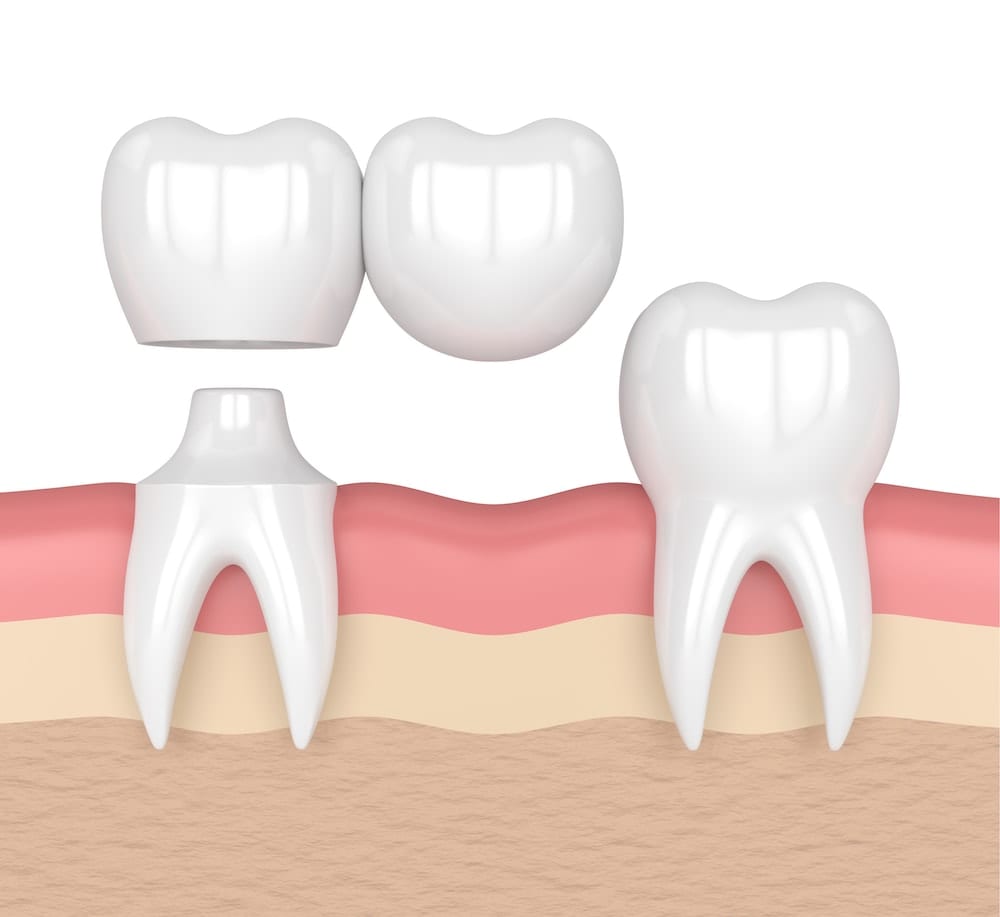Posted January 03, 2024 in Dental Bridge, Dental Implant
3 Minute Read:
Dentistry can have an intimidating stigma for some people, especially those who have avoided the dentist for long periods. Some people may have been tolerating life with missing teeth or teeth that make it difficult to eat or enjoy aesthetically in fear of what the dentist might say or do. However, as ominous as dental help might seem after years of dreading, there is no need to fret. There are usually two options someone may require when replacing individual teeth: dental implants or dental bridges.

What Are Dental Implants and Dental Bridges?
Dental implants and dental bridges are both tooth replacements options; however, they differ in their processes and technology. These options replace or restore the entire area where a tooth resides instead of covering a tooth like a traditional crown or veneer.
Dental implants replace a single tooth or multiple teeth in a particular quadrant of the mouth. Implants are more involved and invasive than dental bridges as they require the surgical insertion of a titanium implant into the jawbone through an incision in the gumline. Eventually, through a process known as osseointegration, the jawbone will fuse around the implant, allowing for the attachment of a permanent crown once the area is healed.
A dental bridge is an alternative to an implant that impacts multiple teeth (and not just the missing tooth). A dental bridge creates a natural-looking tooth replacement by anchoring the false tooth to the two surrounding teeth. Dental bridges are ideal for patients who wish to address multiple teeth in succession or do not want implants. Dental bridges are perfect for improving your ability to speak, eat, and enjoy the attractiveness of a full smile.
What Are the Pros and Cons of Dental Implants and Dental Bridges?
Dental implants are considered to be a longer-lasting alternative to bridges because they merge with the jawbone. Since dental implants are effectively an artificial tooth root, they maintain and protect the jawbone’s integrity, which can deteriorate when there is not a root inside. Unfortunately, a dental bridge cannot claim the same benefit, and, eventually, a gap may develop between the artificial tooth and the gum line due to the absorption of the jawbone.
It is always important to speak with your dentist regarding treatment pricing (as costs fluctuate from patient to patient); however, dental bridges often cost significantly less than dental implants. Bridges are also ideal for patients who have been missing their teeth for long periods of time, as the gum and jawbone are often too weak or damaged to provide the proper support for implants.
Overall, both dental implants and dental bridges have unique advantages and disadvantages. The dentists at Gentle Care thoroughly examine your teeth during a checkup to see which option is right.
Interested in Learning More?
If you would like more information about dental implants and dental bridges, contact Gentle Care Dentistry by calling (575) 524-3722 or filling out our contact form to schedule an appointment today.